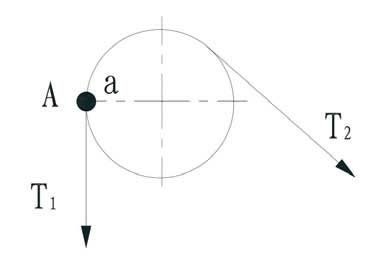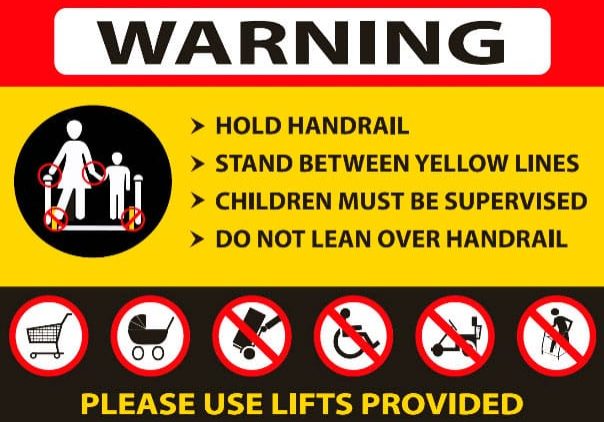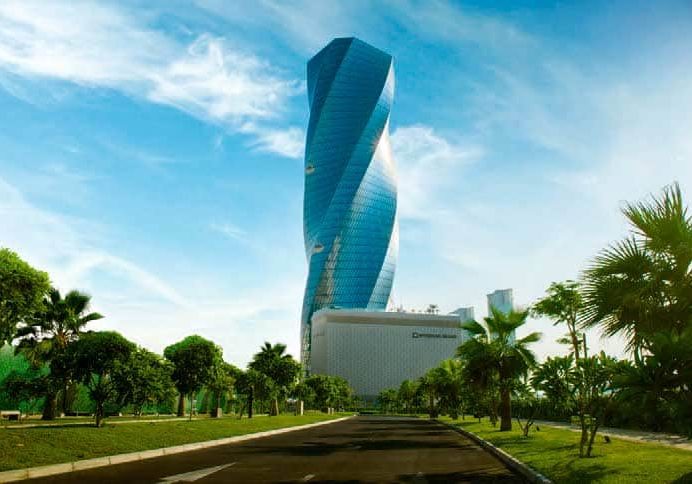Buenos Aires Hosts Wittur’s 50th Anniversary Celebration
Mar 1, 2019

German company has deep ties to Argentine capital, thanks to its 2000 acquisition of local manufacturer.
This is the story of three hardworking men who startedtwoprojectshalf a century ago. Separated by thousands of miles, they ignored their mutual existence until one day they met at a crossroads and built up a long-lasting commercial relationship.
Buenos Aires was chosen as the site to celebrate the 50th anniversary of Wittur, a global vertical-transportation (VT) component manufacturer. Many Argentine elevator companies that are part of Wittur’s local customer portfolio participated in this landmark event on December 7, 2018.
Wittur’s origins and history were recalled in a video that recounted the technological progress and production development achieved within its global network of plants. It showcased installations around the world. As the video unfolded, recollections focused on Wittur Argentina’s factory and on the personnel who produce components and full units in the historical plant located in Sarandí in southern Greater Buenos Aires.
In 1968, Horst Wittur, in Germany, decided to enter the VT industry. That same year, Nicolás Vrdoljak and Walter González, owners of small workshops, established the Sociedad Industrial Metalúrgica, known as Soimet, in Sarandí. These three men, so different in culture and idiosyncrasies, shared the same values: courage to face challenges and passion for work. Their paths would eventually meet at a crossroads.
In 1978, the Argentine friends and partners, who had a great working capacity and commercial vision, decided to take a chance on Europe. They struck a deal with the Italian company Selcom Parma and returned with a license as exclusive distributors and manufacturers of automatic elevator doors. This deal allowed them to dedicate themselves to the elevator industry.
In 1980, Soimet started local production of doors and frames. In an emerging globalization, Italians, Germans, Spaniards and Argentineans became partners and friends. Shortly afterward, Soimet began the production of hydraulic equipment and elevator cars, supplying complete elevators.
Antoine Doutriaux, Wittur Group CEO, and Giorgio Scarabello, managing director- Americas, were distinguished guests at the Golden Anniversary celebrations, which included a dinner dance and sundry entertainment. Doutriaux, reading in Spanish, pointed out that two half-century- birthday companies were celebrated: “The first one, in Argentina, because Soimet was established in 1968, and the second one in Germany, when Horst Wittur started his company, also in 1968, and, thanks to his great vision, he developed it worldwide.” In 2000, when Horst Wittur decided to purchase Soimet, “both companies built up a common history.” Doutriaux continued, “My future strategy is definitely that Wittur may continue to grow, with multinational and independent companies,” and he went on to acknowledge “our dear customers for their permanent support.”
Scarabello, also in Spanish, pointed out, “Many efforts and improvements have been made in our company to place it as a leading player in the global market.” He noted that Wittur invests in innovative technology, and, in Argentina, “In spite of the difficult local economy situation, a new laser machine was purchased to improve flexibility and quality, and to reduce delivery terms.” He said a sound administrative team in Argentina and Brazil guarantees Wittur’s reputation in Latin America. “Let us continue building on the foundations of the last 50 years,” he concluded.
Fernando Lueje, sales director-Latin America and country manager-Argentina, said, “Today, the factory where steel sheet is turned into elevator components has 100 employees. At present, we produce nearly 13,000 doors and 250 components for complete elevators annually.”
Through the years, Wittur acquired leading elevator component manufacturers, including Soimet, which was purchased in 2007. Having started as a family-owned company, Wittur became a multinational group owned by financial organizations. “However, its target has always been the same: to meet its customers’ expectations,” Lueje explained.
Elizabeth Vrdoljak, Nicolás Vrdoljak’s daughter, was deeply moved as she remembered her father and González in the early days of Soimet: “They cared so much for each other. They never discussed money. I believe they were more than brothers.”
To round up this historical review, Lueje added, “Wittur Argentina has changed in accordance with technological progress and innovations, but its strategy is focused on the customer’s satisfaction, despite the economic ups and downs of the country.”
Wittur Executives Discuss Global Market
Your author (CM) sat down with Wittur Group CEO Antoine Doutriaux (AD), Wittur Managing Director-Americas Giorgio Scarabello (GS), and Wittur Argentina General Manager and Sales Director-Latin America Fernando Lueje (FL) for a discussion of Wittur Group’s strategy in and the current characteristics of the global elevator market.
CM: How can Wittur grow even more?
AD: The elevator market, in general, is growing faster than the gross domestic product, because of strong megatrends like urbanization, the steady growth of the middle class, an aging population, improvements in safety, the focus on innovation/digitalization and attention on the environment. The elevator component market is growing even faster because of the multinational companies’ strategy to outsource. It is our target to increase our portfolio and gain market share to grow faster than the market.
CM: Which sectors in the elevator market are growing faster?
AD: We must make a distinction between new installations and modernizations. We are slightly positive on new installations. It is not a huge acceleration, but we anticipate some growth almost everywhere in the world. China has overcome its difficulties, so this market will slightly increase in new constructions. On the other hand, modernization in China is growing fast to replace the first vertical-transportation (VT) systems installed back in the 1990s. In Europe and North America, modernization is also very significant. So, overall, these niches are pushing the elevator market.
CM: Which sectors in the elevator market are growing faster?
AD: We must make a distinction between new installations and modernizations. We are slightly positive on new installations. It is not a huge acceleration, but we anticipate some growth almost everywhere in the world. China has overcome its diffi culties, so this market will slightly increase in new constructions. On the other hand, modernization in China is growing fast to replace the fi rst vertical-transportation (VT) systems installed back in the 1990s. In Europe and North America, modernization is also very signifi cant. So, overall, these niches are pushing the elevator market.
CM: Wittur, Sematic and Tyler are strongly related; can you explain why?
GS: Established in 1872, Tyler is a U.S.-based door and cabin specialist. In the past decades, it supplied components and products to the most iconic buildings in the U.S. and worldwide. In 2000, the Italian company Sematic purchased Tyler within its expanding activities to other countries. After Sematic’s merger with Wittur in 2016, the name of the company is Wittur worldwide; Sematic and Tyler in the U.S. are two of its product brands.
CM: What are Wittur’s global plans for the group in the near future?
AD: We are in a market that is growing very fast. To win market share, we will continue strengthening our strategy to give better service to our customers. Our customer portfolio achieved a better balance after the merger with Sematic, covering more needs and requirements for different markets. Our competitors are challenging, which is good to push us in our innovation, performance and quality.
CM: Are the multinational companies outsourcing their components?
AD: Yes, all of them, even though they are at a different level of progress. These companies are focusing on their own customers, so they invest their resources in digitalization, service and project management, rather than in producing components. Multinationals are component integrators, so they use Wittur’s capability and capacity to get a final product.
FL: With this strategy, multinational companies focus on installations and maintenance to give better service to their customers and add value in this area.
CM: Which of Wittur’s components get the most important market share?
AD: All our components are important for our customers. Doors are clearly Wittur’s core product, but drives; safety gears; and, fi nally, complete systems or kits are very important for multinationals and customers alike, even in Argentina and South America.
CM: Can you describe the elevator market characteristics in Brazil and Argentina?
GS: Our strategy is to be active in Latin America, even though there are economic diffi culties at present. We have two plants in South America: a new one in Londrina, Brazil, opened in 2015, where we manufacture landing-door mechanisms, car-door operators and complete doors for the Brazilian and South American markets. Th e other is in Buenos Aires. Th is 50-year-old plant has the same capability as the Brazilian one and, in addition, it has the capability to develop and manufacture complete systems. It boasts the expertise of a group of engineers who know the elevator industry very well and produce elevator products under Fernando’s direction. Th ey provide standard elevators for independent customers but can also customize systems, such as panoramic elevators for commercial buildings or freight elevators. Th is is the only company with this capability in Argentina. Th e next step is to extend its market reach to the rest of Latin America.
FL: In Latin America, the modernization potential is actually important, and if we can develop proper market-based solutions, there will be a huge growth in this segment for the next years. Furthermore, in 2017, multinational companies based in Brazil changed their strategies. Th ey have decided to provide their products to the local market and to the region only from their plants in Brazil. Wittur will accompany their growth and strategy. However, it is worth mentioning that we always keep a balance between multinationals and independents, providing them with components to add quality and safety to their installations. Consequently, we are helping them increase their market share.
CM: How is the market situation in the rest of Latin America at present?
FL: Peru grew a lot during the last 10 years, improving the quality of buildings and elevators. In general terms, almost all Latin American countries are facing a stable and organic growth aligned with their economic situations.
GS: Multinationals are very active in Colombia, Mexico and Panama in the modernization market, and they are winning market share from independents.
CM: What is your vision of the American and the European markets?
GS: Th e North American market is unique and very different from the rest of the world, mainly because it follows its own standard (ASME A17.1/CSA B44), but also because of its division between historical manufacturers of door operators and entrances. At present, the whole North American industry is under a consolidation process, and changes are expected in this market. Th e peculiarity in this market is the product itself, and Wittur, including its Sematic/Tyler brands, is well-positioned to develop and supply components to multinationals and independents for new installations and modernizations.
AD: Europe is pretty stable and remains the number-one market by installed base. Th is is our home area, where we are stronger, and it will remain so, with a reasonable growth. Th e Iranian market has been blocked by sanctions, and Turkey has a difficult currency situation. Africa, with its growing infrastructure and booming foreign investment, is our next destination.
Get more of Elevator World. Sign up for our free e-newsletter.








